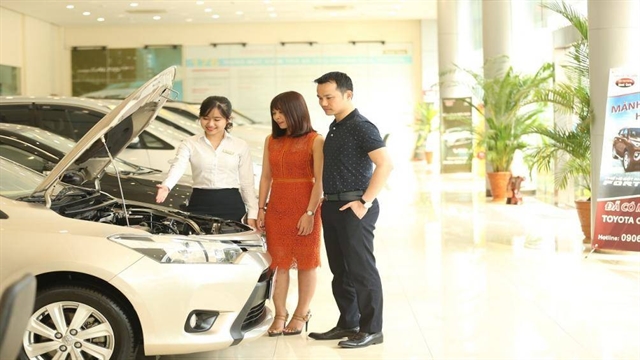Prime Minister Nguyen Xuan Phuc will cut 50 per cent of registration fee for locally-manufactured and -assembled cars from now to the end of this year.

Prime Minister Nguyen Xuan Phuc will cut 50 per cent of registration fees for locally-manufactured and -assembled cars from now to the end of this year.
The cut will help customers save from tens of millions to hundreds of millions of dong, depending on the type of vehicle.
The decision was announced at a meeting held this week on the Government’s draft resolution on tasks and solutions to continue solving difficulties for production and business, promoting disbursement of public investment capital and ensuring social safety in the context of the COVID-19 pandemic.
The registration fee reduction is one of the solutions proposed by the Ministry of Industry and Trade in order to help local businesses recover production and trade as well as stimulating the consumption of locally-manufactured and -assembled cars.
Cars currently have a registration fee of 12 per cent of the car value in Ha Noi, and 10 per cent in remaining cities and provinces nationwide.
Some ‘hot’ models in the markets, including: Mercedes Benz with prices ranging from VND1.39 billion (US$59,600) to VND4.6 billion will now have registration fees of between VND83 million and VND276 million; Huyndai Accent priced at VND426 million will now have registration fee of about VND26 million; as for Toyota Fortuner priced at VND1.033 billion, customers will now pay about VND62 million.
Moreover, dealers are also offering attractive promotions and discounts for many models. Therefore, customers will enjoy great benefits when buying a car at this time.
Thanks to this reduction, locally assembled automobile models have a big advantage over imported cars. To be able to compete, imported cars are facing pressure to reduce prices further.
Phuc also required the Ministry of Planning and Investment to build a project on solutions for supporting industries, taking advantage of opportunities from the investment wave after the COVID-19 pandemic and developing ecosystems for the automobile industry. — VNS




